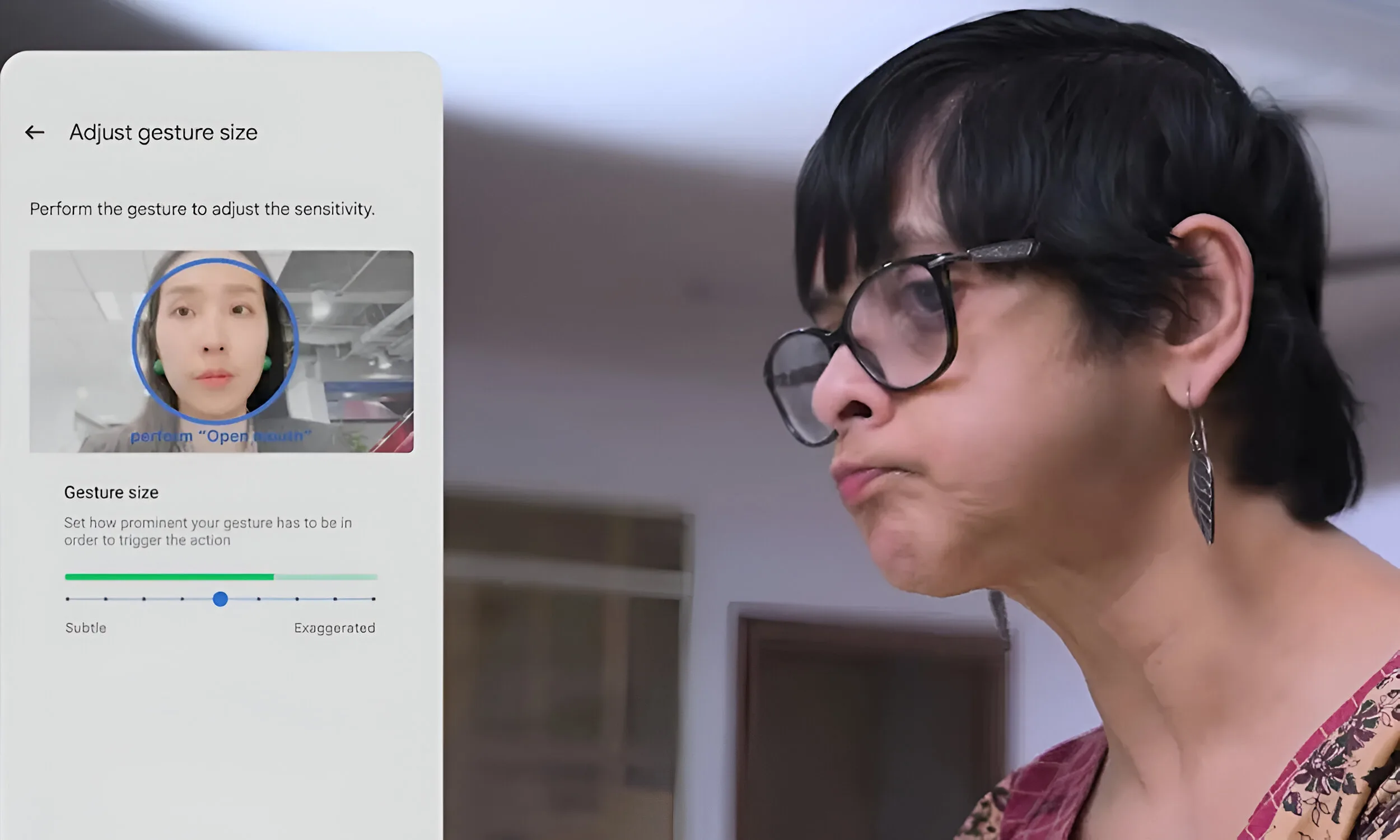
One year has elapsed since Google unveiled Project Gameface, and now, this gaming accessibility tool is available for developers to access. Avneet Singh, Product Manager at Google Partner Innovation, announced this yesterday in a closed-door session at the I/O 2024 event. Google is referring to this as essentially “an open-source, hands-free gaming ‘mouse’”.
In essence, this gaming accessibility tool is a cursor that utilizes head tracking and facial expressions. The tool operates using your Android device’s camera. Google also released a dedicated YouTube video demonstrating how this mouse operates, which you can view:
Project Gameface utilizes MediaPipe’s Face Landmarks Detection API to monitor these facial expressions, enabling the user to control the cursor. In its blog, Google states,
“We have replicated the same idea to bring a new virtual cursor on an Android device. We are using the Android accessibility service to create a new cursor and are leveraging MediaPipe’s Face Landmarks Detection API to program the cursor in a way so it moves according to a user’s head movement.“
This API includes 52 facial expressions represented by 52 face blendshape values. The tool enables you to assign these gestures to specific mobile actions. Once configured, you’re all set.

The tool then superimposes a camera feed overlay, showing you how your gestures translate to on-screen actions. According to Google, this feature “facilitates accurate threshold settings and a deeper comprehension of gestures.” Additionally, Project Gameface allows for hands-free execution of the drag function on your Android device.
In essence, Project Gameface empowers people with disabilities to experience full-fledged Android functionality without needing to use their hands. A visitor at last year’s Google I/O Connect event in Bengaluru witnessed the tool in action.
Once you get accustomed to it, the potential of Project Gameface becomes apparent. The user demonstrates impressive aiming abilities, highlighting the tool’s effectiveness. It’s impressive to see how Project Gameface has evolved from its inception as a collaboration with quadriplegic video game streamer Lance Carr.
Google isn’t the only company taking such initiatives. While Elon Musk’s Neuralink has recently faced negative publicity, its inception aimed to assist paralyzed patients in controlling digital interfaces with their minds.
We are moving towards a hands-free future, which is promising. I’m excited to witness the full potential of such projects. What are your thoughts on Google’s Project Gameface initiative? Feel free to share in the comments below.



